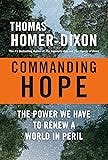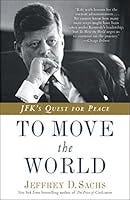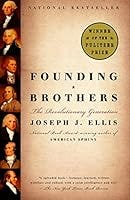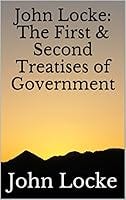Earlier this year, I posted a daily selection of quotes with some commentary. I took a break from the daily posting to share some posts from years past, originally on my Blogger site. Then, I detoured into a series on why not vote for Trump-Vance. (Sigh.) So now what do I do? Well, for now anyhow, I’m going to return to some quotes, commentary, sites/cites, and random musings, with the occasional book review, oldie, or essay thrown in separately for good measure. I will resist the compulsion to post daily (and a trip coming up later this week should help with that). I’ll take this path because in replying to some comments on a recent post, I realized that I’m an intellectual packrat. I’m not smart enough or disciplined enough to build any intellectual artifact beyond what I can grab here and there. But that suits me. So while I’ll not build anything grand here, I am delighted to share the shiny bubbles that I’ve stolen—borrowed—from others. (Full attribution will always be the order of the day. I don’t think that I’ve ever had a truly original thought; whenever I so flatter myself with that claim, it collapses soon after.) So, without further ado . . . .
“No passion,” said Edmund Burke, the English statesman and philosopher, “so effectually robs the mind of all its power of acting and reasoning as fear.”
Amen, amen, amen! Fear is a wonderful early warning system but a terrible navigation system.
And if all others accepted the lie which the Party imposed—if all records told the same tale—then the lie passed into history and became truth. “Who controls the past,” ran the Party slogan, “controls the future: who controls the present controls the past.” And yet the past, though of its nature alterable, never had been altered. Whatever was true now was true from everlasting to everlasting. It was quite simple. All that was needed was an unending series of victories over your own memory. “Reality control,” they called it; in Newspeak, “doublethink.”
I must disagree, or perhaps clarify, Orwell. The Past is unalterable. It is fixed. What happened, happened. The stories (history) that we tell about the past can, does, and should change, as we explore and consider it in greater detail and from new perspectives. The past is like an infinitely large chunk of fossilized rock, which we can only examine and know bits and pieces of. We can only consider the evidence left by the fossils, those creatures who leave us artifacts that can endure. Shells or documents, for instance. But while the past leaves only a smattering of artifacts, it all is frozen in time past. This is the potential bulwark against the lies of the present. The powers that be can paint it, hide it, distort it—but fundamentally, they cannot destroy it, it’s indestructible. Of course, the powers that be can claim it was always so, but this is the Big Lie. The lie we must all resist.
Our problems are manmade; therefore, they can be solved by man [sic]. And man can be as big as he wants. No problem of human destiny is beyond human beings. Man’s reason and spirit have often solved the seemingly unsolvable, and we believe they can do it again.
Maybe. I’m not convinced, but it’s a necessary fiction in any event.
Honor mattered because character mattered. And character mattered because the fate of the American experiment with republican government still required virtuous leaders to survive. Eventually, the United States might develop into a nation of laws and established institutions capable of surviving corrupt or incompetent public officials. But it was not there yet. It still required honorable and virtuous leaders to endure. Both Burr and Hamilton came to the interview because they wished to be regarded as part of such company.
Now, after about 235 years, most American voters have decided that honor and character don’t matter. They believe that our “nation of laws and established institutions capable of surviving corrupt or incompetent public officials” can withstand both the corrupt and incompetent. We shall test this faith in the years ahead—in the nuclear age, the age of pandemics, the age of climate change, and so much more. I’m not sanguine about the likelihood of the institutions prevailing in the absence of character and honor. I’m for bringing honor and character back into the equation.
The First & Second Treatises of Government
Political power, then, I take to be a right of making laws with penalties of death, and consequently all less penalties, for the regulating and preserving of property, and of employing the force of the community, in the execution of such laws, and in the defence of the common-wealth from foreign injury; and all this only for the public good.
I would that every person running for office define for the voters their conception of the “public good.” It should help us to quickly separate the wheat from the chaff.
Sites/Cites
Some of the more useful post-mortems on the election that I’ve read to date. I’ve skipped most because I find that many just promote their pet theory and their “if only” claims. I’m skeptical. And I’ll even include one of those of whom I’m skeptical, but I think likely carefully considered (Zacharia). Anyway, here are a few hits from my playlist.
I Study Guys Like Trump. There’s a Reason They Keep Winning.
Nov. 8, 2024 by Ben Rhodes
Fully considered and nuanced analysis.
Trump Voters Got What They Wanted
Those who expect that Donald Trump will hurt others, and not them, are likely to be unpleasantly surprised.
By Tom Nichols
Nichols doesn’t mince words, nor should he. His book, Our Own Worst Enemy is terrific. I highly recommend it.
Democrats’ three big mistakes
Democratic strategists mishandled immigration, identity politics and the pileup of Trump prosecutions.
By Fareed Zacharia.
He makes some valid points, but I contend that the forces at play go deeper than “the issues.” I also disagree about the prosecutions. Trump violated the law, beyond reasonable doubt in one case and with probable cause in the other three cases that he’ll never stand trial for. This was not an ordinary election with an ordinary candidate and an ordinary party. MAGA is a movement, not a political party. And the Republican Party is now MAGA; the Republican Party as it once existed is gone. MAGA, not magnates, now control it.






